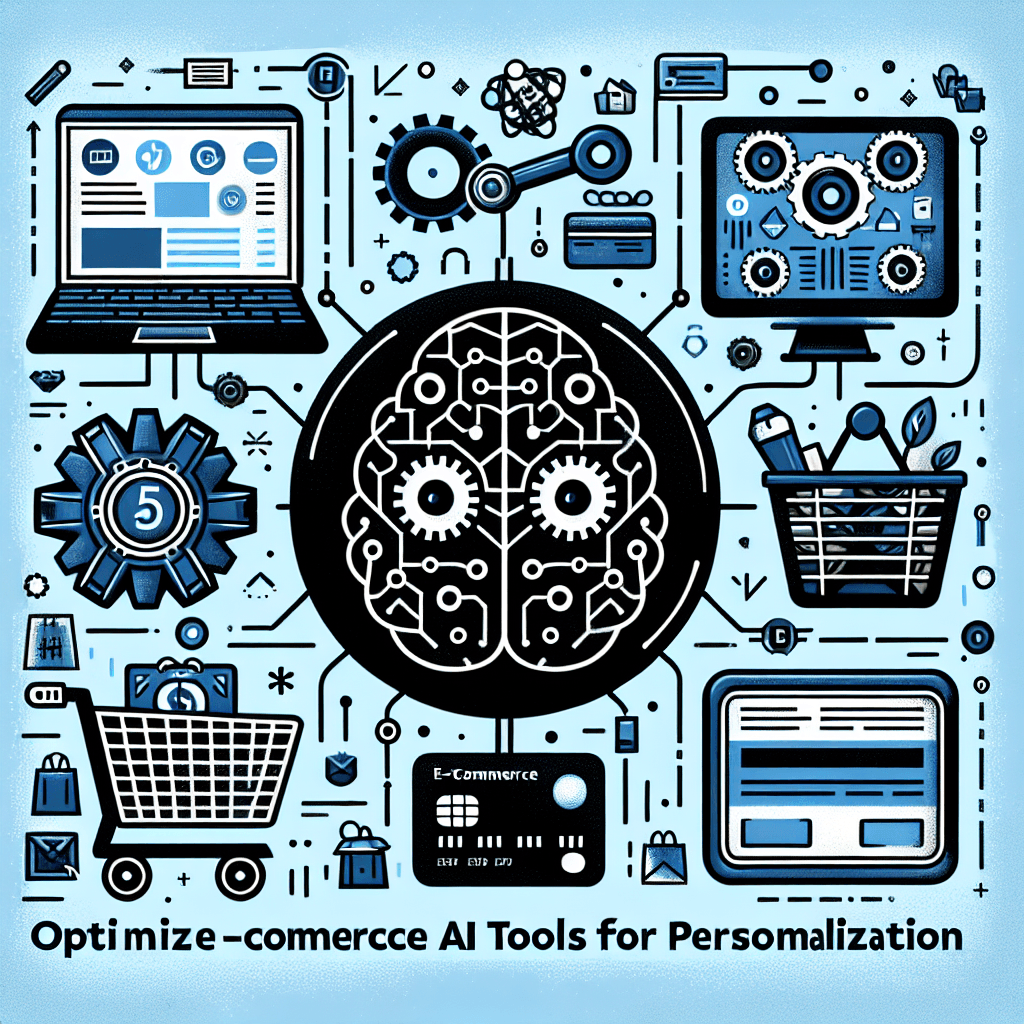In the fast-paced world of e-commerce, standing out from the competition is more critical than ever. With consumers increasingly seeking tailored experiences, businesses must rely on innovative solutions to meet these evolving needs. Enter the world of Artificial Intelligence (AI)—especially in the realm of personalization. As we dive deep into the top five AI tools for personalization, we’ll explore how these technologies can elevate your e-commerce strategy and optimize customer satisfaction.
Understanding Personalization in E-Commerce
In today’s digital landscape, personalization has become a buzzword—one that signifies the need for businesses to move away from one-size-fits-all solutions. Modern consumers favor experiences that resonate with their unique preferences, influencing their purchasing decisions.
The Impact of AI on Personalization
Artificial intelligence is revolutionizing how businesses interact with their customers. By leveraging data, AI tools can create dynamic, personalized shopping experiences that adapt to individual user behaviors. This not only enhances the customer journey but can significantly boost conversion rates.
1. Dynamic Yield: Tailored Experiences Made Easy
Dynamic Yield is a comprehensive personalization platform that allows e-commerce businesses to create unique experiences based on user behavior and preferences. With its intuitive interface, merchants can segment their audience and deploy personalized content across multiple touchpoints.
One of the standout features of Dynamic Yield is its A/B testing capabilities. Businesses can experiment with various versions of web pages or emails to determine which resonates best with customers, ultimately guiding investment toward strategies that yield the highest ROI.
2. Segment: Data-Driven Customer Insights
Next up is Segment, a customer data platform that provides businesses with a unified view of their customers. By centralizing data from various sources, Segment enables companies to segment their audience effectively, tailor marketing campaigns, and drive personalized interactions.
The tool stands out because of its ease of integration with various third-party applications and its ability to send data to multiple channels, such as email and SMS. This seamless feature ensures businesses can nurture leads effectively, leading to higher engagement rates.
3. Nosto: A Personal Shopping Assistant
Nosto combines AI and machine learning to give e-commerce retailers the power to create personalized shopping experiences effortlessly. By analyzing user behavior in real-time, Nosto delivers tailored product recommendations, dynamic pop-ups, and individualized landing pages.
One of the key advantages of using Nosto is its easy integration with existing e-commerce platforms like Shopify and Magento. This accessibility allows businesses to start personalizing their customer journeys with minimal technical expertise.
4. Shopify’s Kit: Your Virtual Marketing Assistant
For Shopify users, Kit serves as an AI-driven virtual marketing assistant. Kit helps businesses engage customers through targeted emails, social media promotions, and personalized advertisements. Its ability to analyze sales data enables Kit to recommend actionable tasks that can drive conversions.
Notably, Kit learns from user interactions and refines its marketing strategies based on performance metrics. This adaptive learning aspect makes it an ideal tool for e-commerce businesses aiming to enhance their marketing efforts.
5. Persado: Emotionally Intelligent Messaging
Persado is at the forefront of AI-driven language generation, utilizing cognitive computing to craft the language of marketing messages. By combining data-driven insights with emotional triggers, Persado generates compelling content that resonates with customers, leading to higher engagement rates.
The tool’s ability to deliver real-time messaging means businesses can dynamically adapt their offerings based on customer preferences, seasonal trends, or other variables. This level of customization can significantly impact conversion rates and overall customer satisfaction.
The Benefits of AI Personalization Tools
Beyond Projections: The Real Benefits of AI
Adopting AI tools for personalization in e-commerce offers a plethora of benefits. These range from increasing customer loyalty, driving higher sales, to creating a more enriching shopping experience. Businesses using personalization strategies witness an average 20% increase in sales.
Enhanced Customer Experience
By understanding customer behaviors, businesses can deliver a more streamlined and enjoyable shopping experience. Customers appreciate the ease of finding products that suit their needs, leading to greater satisfaction.
Higher Conversion Rates
With personalized messaging and product recommendations, businesses benefit from higher conversion rates. Offering customers curated selections increases the likelihood of purchases and boosts overall sales.
The Future of Personalization in E-Commerce
Trends to Watch
As technology continues to evolve, so too will the landscape of personalization in e-commerce. The integration of AI tools is set to grow, allowing businesses to further refine their strategies based on emerging consumer trends and preferences.
The Rise of Voice Commerce
With the rise of smart assistants like Google Home and Amazon Alexa, businesses must begin to consider how voice search will affect personalization. Ensuring that platforms are optimized for voice search will become increasingly important as consumer reliance on these technologies grows.
Implementing AI Tools: Challenges Ahead
While the benefits of AI in e-commerce are substantial, integrating these tools isn’t without its challenges. Data privacy concerns, ensuring accuracy in AI predictions, and the cost of implementation are daunting hurdles for many businesses.
Training and Resources
To maximize the effectiveness of AI tools, organizations must invest in resources and training. Understanding how to leverage these systems is critical to gaining a competitive edge in the ever-evolving e-commerce landscape.
Conclusion: Harnessing AI for E-Commerce Success
In conclusion, the adoption of AI tools for personalization is no longer just a trend—it’s a necessity for e-commerce businesses aiming to thrive in today’s competitive market. By utilizing platforms such as Dynamic Yield, Segment, Nosto, Shopify’s Kit, and Persado, businesses can offer tailored experiences that resonate with their customers. As technological advancements continue, the potential for enhancing customer engagement through personalization will only grow. Businesses that invest in these strategic solutions will undoubtedly remain at the forefront of the e-commerce revolution.








